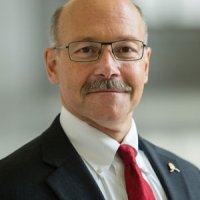Arctic Research in the National Interest
The United States possesses a wide array of Arctic research facilities operated by the federal government and research institutions. One of the most unique facilities is the High-frequency Active Aurora Research Program (HAARP), owned and operated by the Geophysical Institute at the University of Alaska Fairbanks.
As one of four such facilities in the world (and one of two in the United States), HAARP’s ability to transmit high power, high frequency (HF) radio waves allows scientists to “reach up and touch” the ionosphere, an atmospheric region that can severely impact communications and navigation systems. HAARP effectively turns the Ionosphere into a laboratory. These facilities can be used for multiple strategic applications from global HF communication, submarine communication, over-the-horizon radar, and radiation belt interactions. As the demand grows for reliable HF communications for emergency management and disaster relief, our understanding of the Ionosphere and how it functions becomes ever so more important.
Please join a distinguished panel of researchers as they discuss the scientific and strategic importance of these facilities and the prospects of sustaining them long-term.
Agenda
1:00pm: Air Force Research & Applications of HAARP: Evgeny Mishin, Senior Research Physicist, Space Vehicles Directorate, Air Force Research Laboratory, & Jason Williams, Branch Chief, U.S. Air Force
1:30pm: Navy Research & Applications: Paul Bernhardt, Physicist, Plasma Physics Division, Naval Research Laboratory, Office of Naval Research
2:00pm: Department of Energy Research & Applications: Matthew Heavner, Data Science Program Manager, Global Security, Intelligence, and Emerging Threats, Los Alamos National Laboratory
2:30pm: Science Summary: David Hysell, Chairperson, Earth and Atmospheric Sciences, College of Engineering, Cornell University
3:00pm: Concluding Remarks: Mike Sfraga, Director, Polar Initiative, Wilson Center, & Bob McCoy, Director, Geophysical Institute, University of Alaska Fairbanks
Speakers
Introductions

US Ambassador-at-Large for Arctic Affairs; Former Chair, US Arctic Research Commission
Hosted By

Polar Institute
Since its inception in 2017, the Polar Institute has become a premier forum for discussion and policy analysis of Arctic and Antarctic issues, and is known in Washington, DC and elsewhere as the Arctic Public Square. The Institute holistically studies the central policy issues facing these regions—with an emphasis on Arctic governance, climate change, economic development, scientific research, security, and Indigenous communities—and communicates trusted analysis to policymakers and other stakeholders. Read more
